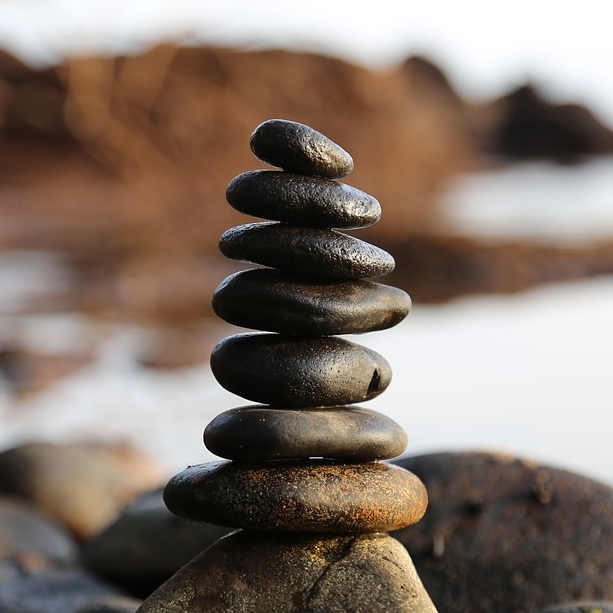Trouble Sleeping?
What your doctor is not telling you that could make a difference...

I hear so many of my clients have trouble sleeping and many people in general come to me with either difficulty with falling asleep or they wake up during the night and can’t go back to sleep or it takes hours to return to their slumber.
We all have an internal clock. Experts call it a circadian rhythm which is responsible for our ability to wake up in the morning and go to sleep at night. Cortisol and melatonin are hormones responsible for our circadian rhythm. These two are like alternating energies in our body where we are awake, alive and excited with cortisol and tired, sleepy and groggy with melatonin. How can you tell if your production of cortisol and melatonin are off? Are you wide awake in the morning and all day? Are you tired, sleep and groggy all night? If the answer is no, then there is an imbalance.
CORTISOL
You may have heard of cortisol being labeled as the “death hormone” (eye roll). But the opposite is true. Cortisol is necessary for many processes in the body and without it we would die. Cortisol is responsible for our management of stress… meaning, it’s the first thing that kicks in when there are internal or external reasons for stress as our body tries to return to a destressed and balanced state of well-being.
Internal stressors, for example, can be an infection or a chronic condition or even trauma. External stressors could be marital or financial issues, problems at work, etc. Stress isn’t always a bad thing because an exciting project or event can leave us felling really great, but it is our response to the stress that results in negative or positive feelings. It is the negative feelings or mood or tone caused by stress that are problematic and can make us sick. Cortisol can help us feel really good–we have more energy, our senses are heightened, etc. Roller coasters and birthday parties and lottery tickets and any kind of thrill can give us that “high” when we are winning in life. But cortisol production goes up when our “fight or flight” response is triggered and our safety or our egos are threatened; defending your honor can spike your cortisol (think about those arguments on social media, are they worth it?)


Ebb and Flow

MELATONIN
Besides being the sleep hormone, melatonin is also responsible for slowing down the development of cancer cells. That deserves repeating: if you aren’t producing enough melatonin, then your body is less resistant to cancer.
LED lights are a huge concern in the development of prostate and breast cancers in Europe according to a recent article (April 2018). Why? Again blue light from LED street lights for drivers at night or outside your residence interferes with our body’s ability to produce melatonin.
Another thing to look at is that 75% of melatonin is produced in the gut. Low levels of melatonin could point to having a pathogen (such as a bacterial infection or a parasite) that may be interfering with the production of melatonin. Many of my clients come to me with leaky gut, IBS and other digestive issues. Once we test their gut bacteria and address the issues we find, then they begin to feel better and their sleep improves naturally.
I don’t recommend supplementing on melatonin without knowing what truly is happening first. It is much better to look at the other factors I have mentioned such as eliminating the sources of sleep issues before using supplements. In fact, although I do include melatonin in my client’s customized plans, I recommend against using it long term (so that their body doesn’t get used to it like a crutch by supplementing it instead of producing it on its own). The type of melatonin and the dosage that someone needs should be determined before using it as a supplement.

Recommendations

Here are a few things you can do before you consider using melatonin as a supplement:
- Change the settings on your devices for nighttime use;
- Stay away from ALL your devices (even your TV) two hours before going to bed;
- Take your devices out of your bedroom or keep the screens off;
- Use blackout curtains if ANY outside light is entering your room when your bedroom lights are off;
- Use a sleep mask if all else fails to block any stray light;
- Change all blue/white LED lights to yellow light. Even better if you can use yellow light that adjusts to a lower level as it gets darker outside;
- Low-impact exercise during the day (like lifting weights) can set the stage for restful sleep;
- Meditation or yoga can counteract negative stress and can help you clear your mind during the day and before going to bed;
- If you feel tired in the morning or tired after lunch as well as having sleep problems, you may want to try cutting out all sugars to see if that helps.
- Drink your coffee black and avoid donuts or anything with sugar as an ingredient. This means that even a “healthy salad” can be bad for you if the dressing has sugar as an ingredient.
- Avoid energy drinks completely because they will destabilize your cortisol production and will not set the stage for a natural production of cortisol and melatonin.
- Hydration is always important to hormone production and regulation, so you should always make sure to drink 8 ounces of water before each meal to stay hydrated and doing this will also help you to avoid overeating.
- Your body is smart and will regulate its temperature at nighttime, rather than cranking up the heater at night, try lowering it a bit (I have mine at 70) and use a weighted blanket;
- If you drink coffee after 2:00 pm and you don’t sleep well, then you may want to consider eliminating any coffee after 2:00 pm.
- Run a hormone panel to see how your melatonin levels are looking (My favorite test is the DUTCH test because it provides a clear picture of how your hormones are metabolized);
- Run a gut pathogen test (I run the GI Map on my clients which gives me a pretty good picture of their gut health);
- Talk to me. Sometimes reading all this may not really sink in, but a phone call can help.

Once I have answers, I am able to provide some sleep support to my clients. I will oftentimes recommend certain supplements such as valerian root or a small dosage of melatonin (for no more than 30 days) to help them sleep. Again, melatonin CAN and will help, but you have to eliminate problems outside of your body first, then if that is not enough, then you need to know exactly how much to use and which kind. Melatonin should only be used to jumpstart your body’s production and should not be used long-term.
